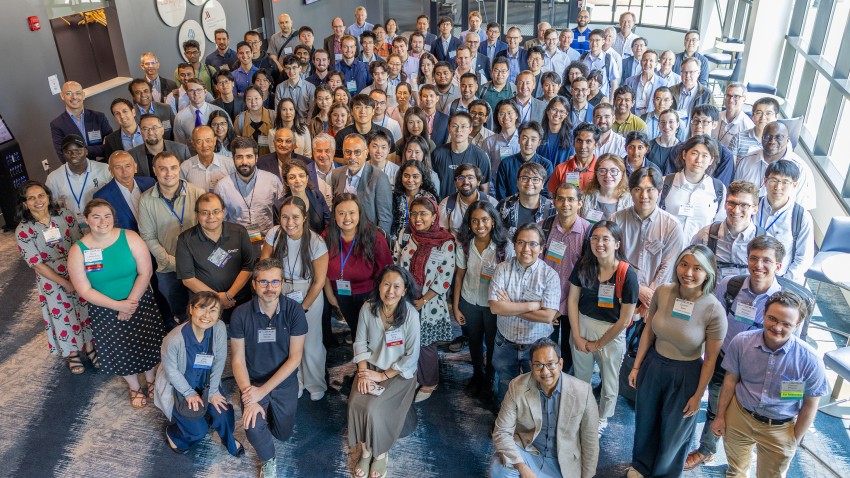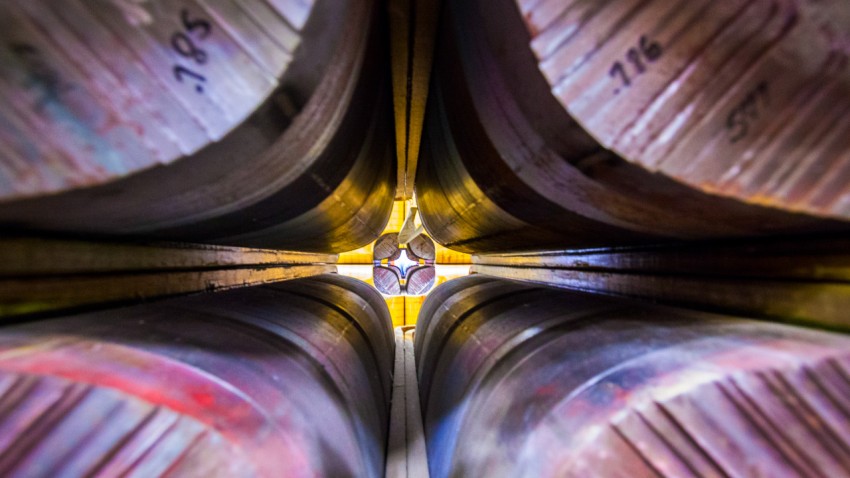News
Cornell University hosted the 2025 SUPREME annual review, bringing together academia, industry, and government to advance next-generation semiconductor innovation and workforce development.
The NSF, in partnership with Intel, will invest $20 million over five years to establish the Artificial Intelligence Materials Institute at Cornell, as part of the National Artificial Intelligence Research Institutes.
The quantum computing revolution draws ever nearer, but the need for a computer that makes correctable errors continues to hold it back.
In a new study, researchers detail their novel approach for both detecting and controlling the motion of spins within antiferromagnets using 2D antiferromagnetic materials and tunnel junctions, which could lead to ultra-fast information transfer and communications at much higher frequencies.
An international collaboration that includes Cornell researchers achieved a new level of precision in measuring the magnetic anomaly of the muon – a tiny, elusive particle that could have very big implications for understanding the subatomic world.
Scientists have discovered a way to convert fluctuating lasers into remarkably stable beams that defy classical physics, opening new doors for photonic technologies that rely on both high power and high precision.
Brad Ramshaw, associate professor of physics, has been named to the 2025 class of Brown Investigators. Each investigator, recognized for curiosity-driven research in chemistry or physics, will receive up to $2 million over five years.
Cornell researchers are helping upgrade the CMS detector at CERN, as LHC collaborations win the 2024 Breakthrough Prize for fundamental physics discoveries.
Researchers studying novel traits in organisms and the fundamental understanding of extreme weather are among the five Cornell assistant professors who've received National Science Foundation Faculty Early Career Development Awards.
Cornell scientists have developed a novel technique to transform symmetrical semiconductor particles into intricately twisted, spiral structures – or “chiral” materials – producing films with extraordinary light-bending properties.
Cornell researchers have identified the highest achievable superconducting temperature of graphene – 60 Kelvin. The finding is mathematically exact and is spurring new insights into the factors that fundamentally control superconductivity.
Researchers have uncovered perplexing states in a nanomaterial as it changes its atomic structure, a discovery that could advance materials with tailored properties for renewable energy and quantum computing.












